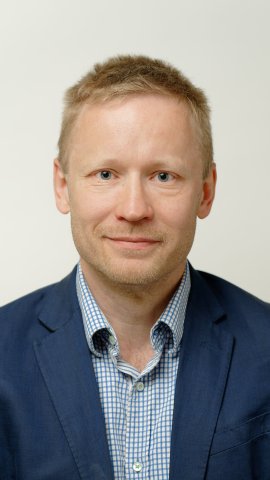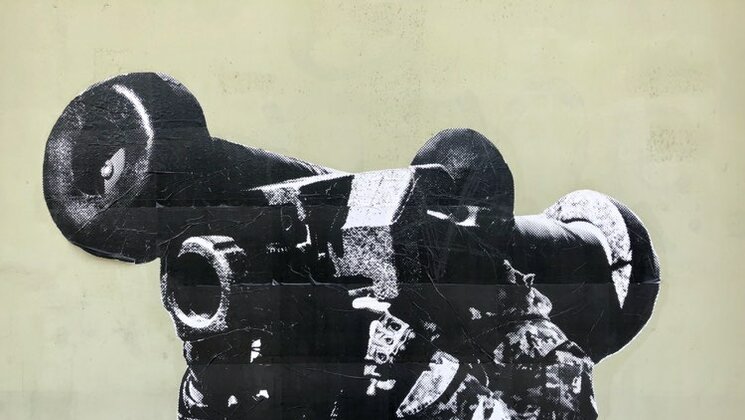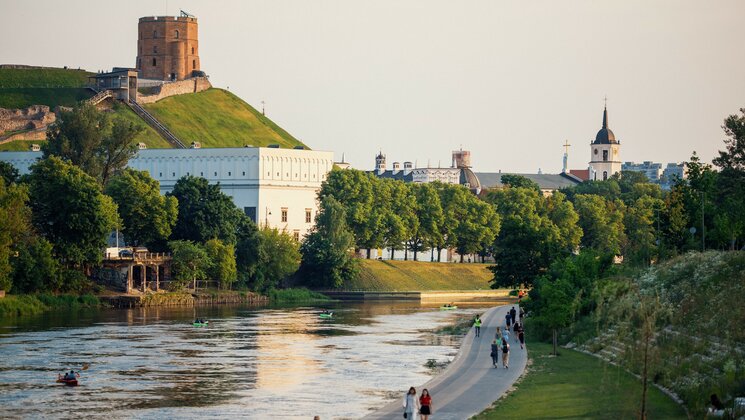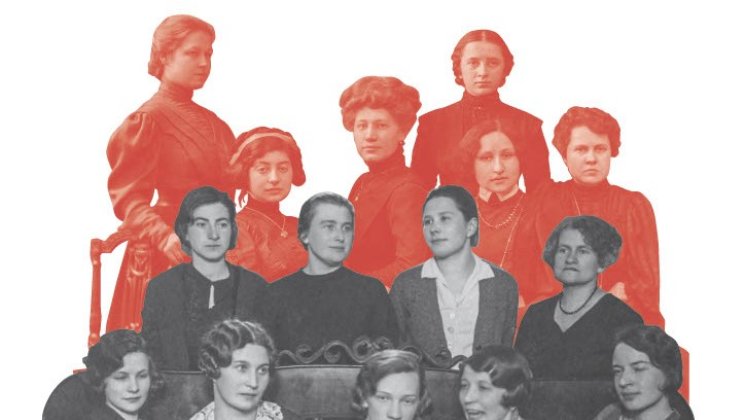-
Faculty of Arts and HumanitiesDean's Office, Faculty of Arts and HumanitiesJakobi 2, r 116-121 51005 Tartu linn, Tartu linn, Tartumaa EST0Institute of History and ArchaeologyJakobi 2 51005 Tartu linn, Tartu linn, Tartumaa EST0Institute of Estonian and General LinguisticsJakobi 2, IV korrus 51005 Tartu linn, Tartu linn, Tartumaa EST0Institute of Philosophy and SemioticsJakobi 2, III korrus, ruumid 302-337 51005 Tartu linn, Tartu linn, Tartumaa EST0Institute of Cultural ResearchÜlikooli 16 51003 Tartu linn, Tartu linn, Tartumaa EST0Institute of Foreign Languages and CulturesLossi 3 51003 Tartu linn, Tartu linn, Tartumaa EST0School of Theology and Religious StudiesÜlikooli 18 50090 Tartu linn, Tartu linn, Tartumaa EST0Viljandi Culture AcademyPosti 1 71004 Viljandi linn, Viljandimaa EST0Professors emeriti, Faculty of Arts and Humanities0Associate Professors emeriti, Faculty of Arts and Humanities0Faculty of Social SciencesDean's Office, Faculty of Social SciencesLossi 36 51003 Tartu linn, Tartu linn, Tartumaa EST0Institute of EducationJakobi 5 51005 Tartu linn, Tartu linn, Tartumaa EST0Johan Skytte Institute of Political StudiesLossi 36, ruum 301 51003 Tartu linn, Tartu linn, Tartumaa EST0School of Economics and Business AdministrationNarva mnt 18 51009 Tartu linn, Tartu linn, Tartumaa EST0Institute of PsychologyNäituse 2 50409 Tartu linn, Tartu linn, Tartumaa EST0School of LawNäituse 20 - 324 50409 Tartu linn, Tartu linn, Tartumaa EST0Institute of Social StudiesLossi 36 51003 Tartu linn, Tartu linn, Tartumaa EST0Narva CollegeRaekoja plats 2 20307 Narva linn, Ida-Virumaa EST0Pärnu CollegeRingi 35 80012 Pärnu linn, Pärnu linn, Pärnumaa EST0Professors emeriti, Faculty of Social Sciences0Associate Professors emeriti, Faculty of Social Sciences0Faculty of MedicineDean's Office, Faculty of MedicineRavila 19 50411 Tartu linn, Tartu linn, Tartumaa ESTInstitute of Biomedicine and Translational MedicineBiomeedikum, Ravila 19 50411 Tartu linn, Tartu linn, Tartumaa ESTInstitute of PharmacyNooruse 1 50411 Tartu linn, Tartu linn, Tartumaa ESTInstitute of DentistryL. Puusepa 1a 50406 Tartu linn, Tartu linn, Tartumaa ESTInstitute of Clinical MedicineL. Puusepa 8 50406 Tartu linn, Tartu linn, Tartumaa ESTInstitute of Family Medicine and Public HealthRavila 19 50411 Tartu linn, Tartu linn, Tartumaa ESTInstitute of Sport Sciences and PhysiotherapyUjula 4 51008 Tartu linn, Tartu linn, Tartumaa ESTProfessors emeriti, Faculty of Medicine0Associate Professors emeriti, Faculty of Medicine0Faculty of Science and TechnologyDean's Office, Faculty of Science and TechnologyVanemuise 46 - 208 51003 Tartu linn, Tartu linn, Tartumaa ESTInstitute of Computer ScienceNarva mnt 18 51009 Tartu linn, Tartu linn, Tartumaa ESTInstitute of GenomicsRiia 23b/2 51010 Tartu linn, Tartu linn, Tartumaa ESTEstonian Marine Institute0Institute of PhysicsInstitute of ChemistryRavila 14a 50411 Tartu linn, Tartu linn, Tartumaa EST0Institute of Mathematics and StatisticsNarva mnt 18 51009 Tartu linn, Tartu linn, Tartumaa EST0Institute of Molecular and Cell BiologyRiia 23, 23b - 134 51010 Tartu linn, Tartu linn, Tartumaa ESTTartu ObservatoryObservatooriumi 1 61602 Tõravere alevik, Nõo vald, Tartumaa EST0Institute of TechnologyNooruse 1 50411 Tartu linn, Tartu linn, Tartumaa ESTInstitute of Ecology and Earth SciencesJ. Liivi tn 2 50409 Tartu linn, Tartu linn, Tartumaa ESTProfessors emeriti, Faculty of Science and Technology0Associate Professors emeriti, Faculty of Science and Technology0Institute of BioengineeringArea of Academic SecretaryHuman Resources OfficeUppsala 6, Lossi 36 51003 Tartu linn, Tartu linn, Tartumaa EST0Area of Head of FinanceFinance Office0Area of Director of AdministrationInformation Technology Office0Administrative OfficeÜlikooli 17 (III korrus) 51005 Tartu linn, Tartu linn, Tartumaa EST0Estates Office0Marketing and Communication OfficeÜlikooli 18, ruumid 102, 104, 209, 210 50090 Tartu linn, Tartu linn, Tartumaa EST0Area of Vice Rector for Academic AffairsOffice of Academic AffairsUniversity of Tartu Youth AcademyUppsala 10 51003 Tartu linn, Tartu linn, Tartumaa EST0Student Union OfficeÜlikooli 18b 51005 Tartu linn, Tartu linn, Tartumaa EST0Centre for Learning and TeachingArea of Vice Rector for ResearchUniversity of Tartu LibraryW. Struve 1 50091 Tartu linn, Tartu linn, Tartumaa EST0Grant OfficeArea of Vice Rector for DevelopmentCentre for Entrepreneurship and InnovationNarva mnt 18 51009 Tartu linn, Tartu linn, Tartumaa EST0University of Tartu Natural History Museum and Botanical GardenVanemuise 46 51003 Tartu linn, Tartu linn, Tartumaa EST0International Cooperation and Protocol Office0University of Tartu MuseumLossi 25 51003 Tartu linn, Tartu linn, Tartumaa EST0Area of RectorRector's Strategy OfficeInternal Audit Office

Rosario Napolitano addresses the diplomatic relations between Italy and Estonia during the interwar period

On 21 November at 16.15 Rosario Napolitano, lecturer at the Technical University and the Art Academy of Riga, will present a lecture titled "The diplomatic relations between Italy and Estonia during the interwar period: from the de jure recognition to the Molotov-Ribbentrop pact (1921-1939)" in room 114 at Jakobi 2. The lecture will be delivered in English, and everyone is welcome to attend.
This presentation will examine how Fascist diplomacy sought to implement Benito Mussolini's foreign policy in Estonia during the 1920s and 1930s. Italy was among the first countries to recognize Estonia (and Latvia) de jure in January 1921, with Lithuania's recognition following in 1922, facilitated by the diplomatic efforts of Italian Foreign Minister Carlo Sforza. From that point, Italy fostered diplomatic, economic, and cultural relations with Estonia, which will be highlighted during the lecture. Notable developments include the establishment of Italian language courses in Tartu and later in Tallinn already in the early 1920s, as well as a business agreement signed in 1928. However, these diplomatic ties began to wane in 1939, when, following the Molotov-Ribbentrop Pact, Estonia and the Baltic states fell under the sphere of influence of the Soviet Union, leading to their occupation and annexation in 1940.
Rosario Napolitano received his Ph.D. in International Studies at the University of Naples "l'Orientale" with a thesis titled "La censura sovietica nei Paesi baltici: dal processo Daniel-Sinjavskij al crollo dell'ŪRSS" (The Soviet censorship in the Baltic states, from Daniel-Sinyavsky trial to the collapse of USSR). Now he works at the Italian-Latvian cooperation centre of Riga Technical University and at the Faculty of Humanities of Art Academy of Fine Arts of Latvia where he teaches Italian language and culture. His research interests include Fascist cultural diplomacy in the Baltic states during the interwar period and policies of Sovietization in Soviet Latvia within the cultural sphere. His last publications are " A Chapter in Latvian Cinema History: The Process of Cinefication (1940–1941; 1944–1953)" published in Acta Historica Tallinnensia (co-author, Prof. Epp Lauk- Vytautas Magnus University Kaunas) and "A diplomat between two countries: Arnolds Spekke as cultural link between Latvia and Italy" published on Baltic Worlds.
The lecture can be followed online in Teams.
You can also join the Facebook event.
This lecture is part of the International History Seminars organized by the Department of Contemporary History at the Institute of History and Archaeology. The seminars aim to provide an international-history perspective on understanding contemporary politics.
Rosario Napolitano "The diplomatic relations between Italy and Estonia during the interwar period: from the de jure recognition to the Molotov-Ribbentrop pact (1921-1939)"
Read more similar news






